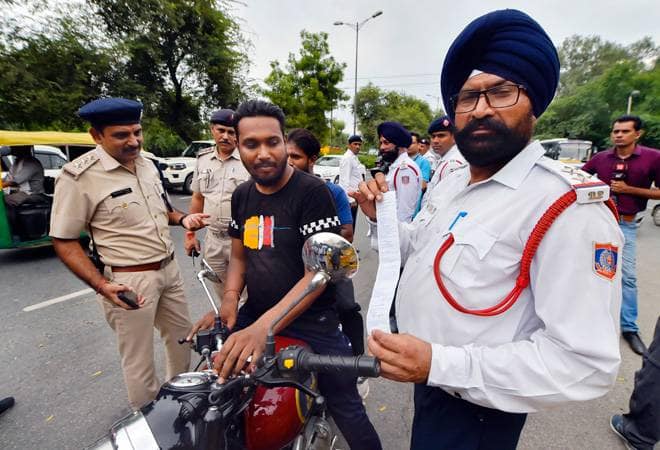Congress party and CPI-M (Communist Party of India-Marxist) came out opposing the recently implemented Motor Vehicle Amendment Act in Kerala. The parties have claimed that the exorbitant rates of fine will put an additional burden on the common man’s purse.
The parties slashed the ruling Bhartiya Janta Party government for coming out with such unscientific amendments. Opposition leader in the state Assembly, Ramesh Chennithala accused the BJP government of “unilaterally” imposing the huge fines. He said that the Union government come out with the new provisions without consulting the state governments.
The Motor Vehicle Amendment Act came into effect from 1 September. The amended rules now push monetary punishment on flouting traffic rules to a higher limit. Now, people will be fined Rs. 10,000 for drunken driving instead of Rs. 2,000. The fine for dangerous driving has gone up from Rs. 1,000 to Rs. 5,000. A person driving two-wheeler without a helmet will be liable to a fine of ₹5000. Under the act, 24 offenses have been kept compoundable.
Oficial responses from government argue that the imposed fines will create a sense of discipline. The increased rates will make people aware of the road traffic rules and it is expected that more people will now abide by them.
The heavy fines have created an uproar situation among the general public and business class. CPI(M) state secretary Kodiyeri Balakrishnan said that it would only result in the rise of corruption. He said that instead of reducing road accidents, government is focused on increasing the rates of fine. He, therefore, urged Pinarayi Vijayan not to follow the Union’s order.
Many states like Tamil Nadu, Madhya Pradesh, Rajasthan, and West Bengal have already announced they will not go on board with Centre’s decision. Therefore these staes have refrained to implement the amended Motor Vehicles Act.
Presently, at least nine states and Union territories, including Karnataka, Kerala, Tamil Nadu, Odisha, Bihar, Jharkhand, and Haryana have noded to implement the act in its present structure.

